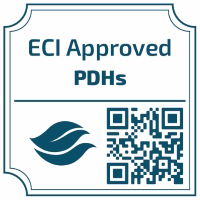Back
Claim Credit Verification Code: 2030
One (1) Hour Technical Paper
Erosion and Sediment Control
The Process and Challenges of Meeting Water Quality & Erosion Control Standards in Construction: A Case Study Approach on Civil Construction Projects in Colorado
Thursday, February 27, 2025
9:10 AM – 10:10 AM ET
Location: E11B
CE: 1 PDH
Level of Presentation: Intermediate

Serena M. Foote
Associate Project Manager
Wilson & Company, Inc., Engineers & Architects
Denver, Colorado, United States
Paper Presenter(s)
Please join us at the IECA 2025 Annual Conference and Expo for an insightful session on navigating water quality challenges in civil construction projects, with a focus on Colorado. Our presentation offers invaluable insights gleaned from real-world case studies, highlighting the importance of implementing strong water quality protocols to protect our freshwater sources. Attendees will gain practical knowledge on stormwater management, erosion control methods, and best management practices essential for environmental compliance. Discover how selecting experienced project teams and fostering a culture of commitment to erosion control and water quality standards can enhance project success. Don't miss this opportunity to learn from an experienced construction professional and contribute to addressing water quality concerns that stem from construction projects!
Full Abstract: Water scarcity is a worldwide issue and is becoming more problematic in Colorado. To protect our freshwater sources, water pollution needs to be addressed. Research shows that construction materials and methods can negatively impact the water sources surrounding the project site if proper water quality protocols are not implemented and maintained. These protocols consist of stormwater management plans, erosion control methods, best management practices, sediment control methods, and more. Water quality issues are prevalent worldwide, but with the continuous population growth in the state of Colorado and the advent of more construction work, it is of specific importance.
This research uses a case study approach in observing the processes involving environmental regulations and water quality standards on civil construction projects in Colorado. Three case studies were conducted on three different active construction projects across Colorado. The research consists of qualitative interviews to gain insight from project professionals on each construction project, on-site observations from routine site audits with the project team, and project document analysis. All three case studies were analyzed and compared to aid the development of future environmental protection processes on civil construction projects in Colorado.
Federal and state regulations and permit requirements can be complex, but the requirements must be met to achieve compliance. To achieve project success in terms of environmental compliance, there are two key aspects, the makeup of the team, and the approach. Our findings reveal that selecting teams based on their experience and those with a sense of environmental responsibility proves to be the most effective. Furthermore, our research underscores that environmental compliance hinges on the unwavering commitment of the entire project team to erosion control and water quality best practices. This commitment stems from a “top-down” approach within the project team's management structure.
Environmental compliance has become a critical aspect of construction projects. When a project team understands and adheres to the processes in place, the entire project has the opportunity to become more successful. This research benefits the intended audience by showcasing how the federal and state erosion control and water quality protocol processes can be developed for future environmental awareness and improvements.
Full Abstract: Water scarcity is a worldwide issue and is becoming more problematic in Colorado. To protect our freshwater sources, water pollution needs to be addressed. Research shows that construction materials and methods can negatively impact the water sources surrounding the project site if proper water quality protocols are not implemented and maintained. These protocols consist of stormwater management plans, erosion control methods, best management practices, sediment control methods, and more. Water quality issues are prevalent worldwide, but with the continuous population growth in the state of Colorado and the advent of more construction work, it is of specific importance.
This research uses a case study approach in observing the processes involving environmental regulations and water quality standards on civil construction projects in Colorado. Three case studies were conducted on three different active construction projects across Colorado. The research consists of qualitative interviews to gain insight from project professionals on each construction project, on-site observations from routine site audits with the project team, and project document analysis. All three case studies were analyzed and compared to aid the development of future environmental protection processes on civil construction projects in Colorado.
Federal and state regulations and permit requirements can be complex, but the requirements must be met to achieve compliance. To achieve project success in terms of environmental compliance, there are two key aspects, the makeup of the team, and the approach. Our findings reveal that selecting teams based on their experience and those with a sense of environmental responsibility proves to be the most effective. Furthermore, our research underscores that environmental compliance hinges on the unwavering commitment of the entire project team to erosion control and water quality best practices. This commitment stems from a “top-down” approach within the project team's management structure.
Environmental compliance has become a critical aspect of construction projects. When a project team understands and adheres to the processes in place, the entire project has the opportunity to become more successful. This research benefits the intended audience by showcasing how the federal and state erosion control and water quality protocol processes can be developed for future environmental awareness and improvements.
Learning Objectives:
At the conclusion of this presentation, attendees will:
- Investigate the water quality protocols and procedures utilized in Colorado civil highway projects.
- Examine the variations in environmental processes concerning water quality and erosion control among civil construction projects in Colorado.
- Provide documentation of findings and strategies for future civil construction projects to effectively attain water quality objectives.

.jpg)


